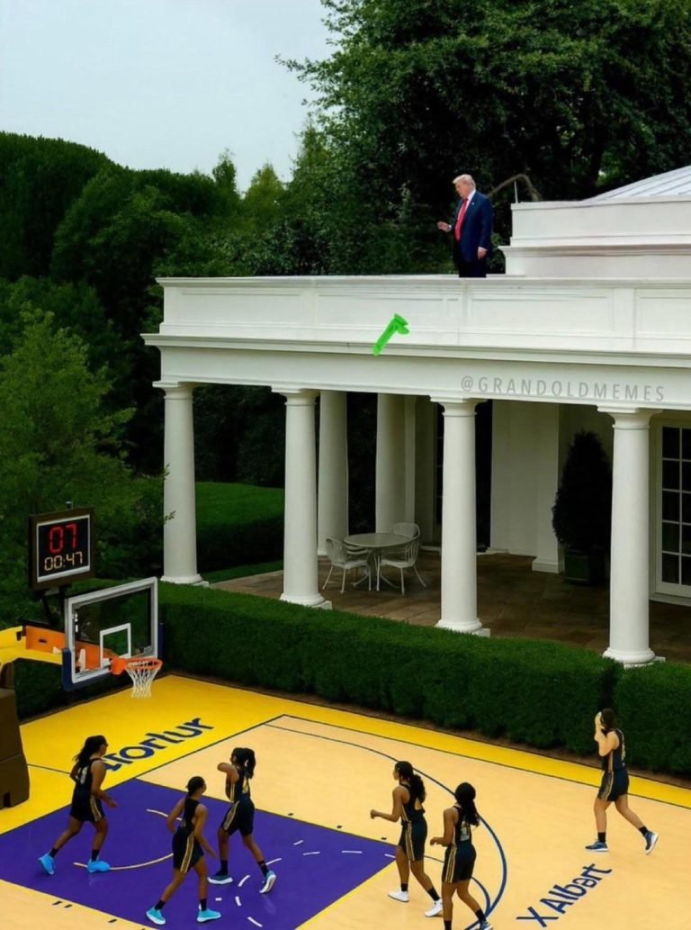From WNBA farce to coin price surge, the viral marketing behind DILDO's tenfold increase in ten days
Author: 1912212.eth, Foresight News
The Women's National Basketball Association (WNBA) was unexpectedly overshadowed by a bizarre "toy invasion" incident.
Starting on July 29, a series of green mysterious toys (dildo) were thrown into the WNBA arena during the 2025 season. So far, there have been three games in which spectators maliciously threw genital-shaped toys into the arena, causing the game to be interrupted and affecting the players and progress of both teams.
This incident seems absurd, but behind it is a carefully planned cryptocurrency meme release.
It all started on the courts of the WNBA. The league attracted record attendances during its 2025 season, and star players like Caitlin Clark and Kelsey Plum became cultural icons. However, on July 29th, during a game between the Atlanta Dream and the Golden State Valkyries, an incident occurred. A fan threw a mysterious bright green toy onto the court, briefly stopping play. While referees and security quickly cleared the scene, the incident was caught on camera and quickly went viral on social media.
Just days later, similar incidents occurred: On August 5th, two more green mystery toys landed at the Chicago Sky's home arena; and during a Los Angeles Sparks game, player Kelsey Plum even kicked one away herself. In just two weeks, at least five similar incidents were reported, including a purple variant, sparking reactions ranging from amusement to outrage.

Initially dismissed as isolated pranks or fan behavior, police intervened and two men were arrested in Chicago on charges including disorderly conduct.

The truth soon emerged: a cryptocurrency group publicly claimed responsibility, claiming the mysterious toy throwing was a carefully orchestrated “protest” and marketing operation to promote their meme coin, Green Dildo Coin (DILDO).
DILDO quietly launched on July 28th. In an interview with USA Today, the group stated their goal was to protest the "toxic" environment of the crypto world, including scams, manipulation, and community infighting. Through this extreme approach, they hoped to generate buzz, attract attention, and demonstrate that virality is possible without relying on influencers (KOLs).
DILDO was issued on the Solana blockchain, with the contract address 0x4C3e9772698084B00b413106723E700797921C6b. The coin's name and theme are directly derived from crypto slang—"green dildo" refers to a large green candlestick on a price chart, symbolizing a surge. The group claims that throwing the mysterious toy is a "glorious protest," but it's essentially low-cost marketing: they only spend $200 on the toy and $500 on tickets to garner tens of millions of impressions.
After the incident quickly escalated, DILDO's price soared from a low of $0.00018 to a high of $0.00222 on August 9th, a nearly tenfold increase in just one week. The meme currently has a market capitalization of $13.96 million, with a 24-hour trading volume of $750,000.
It’s worth mentioning that on August 2, the WNBA official mystery toy peripheral products sold out on the first day of sale.
Some Twitter influencers, such as @jonnajarian and @gainzy222, discussed the incident during livestreams, fueling further hype. Even Donald Trump Jr. joined the discussion by sharing a photoshopped image showing his father, Donald Trump, throwing a mysterious green toy from the White House.

However, the incident sparked significant controversy. WNBA players and league officials expressed strong dissatisfaction. In post-game interviews, players described the behavior as "insulting and disrespectful" and disruptive to their performance. The league implemented enhanced security measures, including body searches and a ban on suspicious items. Furthermore, league officials announced that all 13 WNBA teams must install safety nets.
Critics pointed out that throwing sex toys in a female-dominated league reinforced the stereotype of female athletes being objectified. Slate magazine commented that this wasn't just a prank, but rather a mockery of the struggle for women's rights, particularly in the context of WNBA players fighting for higher salaries and rights. The meme coin's market capitalization has even grown faster than the annual salaries of some WNBA players, highlighting the absurdity of crypto speculation.
A spokesperson for the group denied any connection to the arrests, claiming the action was a "peaceful protest," but this failed to mask the potential risks: In post X, someone warned that this was short-term speculation and lacked long-term value. This isn't the first time such an incident has occurred—Green Dildo Finance in 2021 and other meme coins in 2024 have profited from controversial marketing, but most ultimately collapsed, leaving investors penniless.
The mysterious toy incident involving the WNBA reflects some of the marketing chaos in the crypto market in 2025. While mainstream cryptocurrencies like Bitcoin and Ethereum are experiencing steady growth, the meme coin sector is rife with manipulation and scams. It also demonstrates the limits of viral marketing on social media, which are being pushed to extremes.
What will be the fate of DILDO? Like many meme coins, it will likely be a flash in the pan before fading into obscurity. Regardless, this farce has become a curious footnote to the intersection of sports and crypto in 2025.
You May Also Like

Terraform Co-Founder Do Kwon to Plead Guilty in $40B UST Fiasco

‘No One Wants ETH in the Long Run’—Samson Mow Warns of BTC-Driven Pump and Dump
